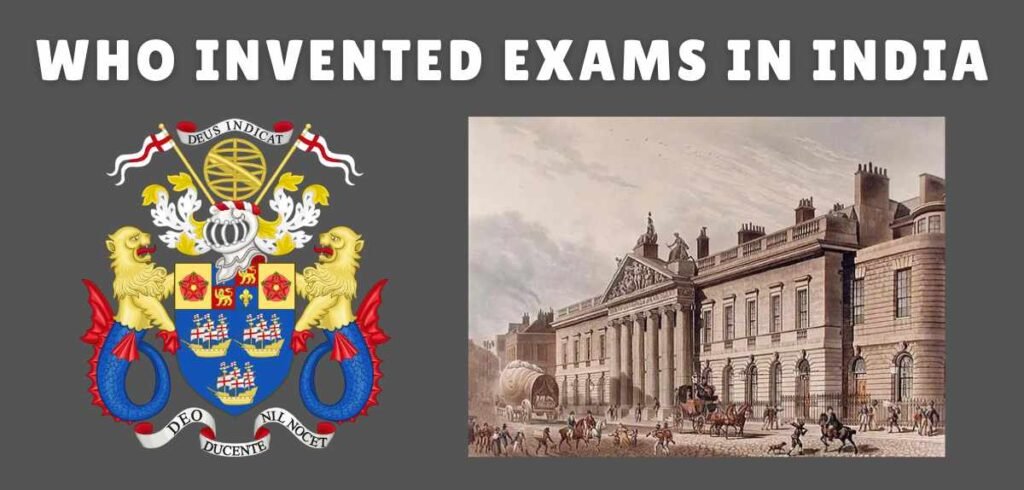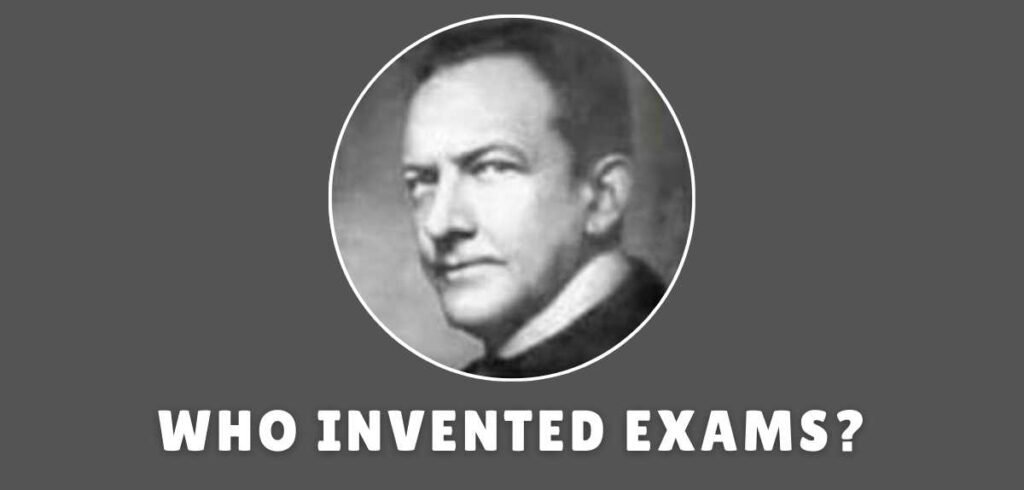Ah, exam day, that dreadful day. that day when the majority of us wanted to throw up during breakfast, lunch, and dinner at the same time. Disappointment can strike like a ton of bricks if things do not go as planned. Exam anxiety is a common occurrence, especially if you are experiencing pressure from your family or school. If you feel like exam stress is taking over your life or if you are experiencing any of these feelings, you are not alone. So, let’s discuss the different types of government exams and find out who invented exams.
Who Invented Exams in World?
Henry Fischel is a businessman from America who has invested in Exams and received credit for creating Exams and studies. In the late 1800s, he founded the first examination in China. The Imperial exam was the initial Exams ever administered globally. The purpose of the exam was to select students who would be eligible to work for the government. In fact, exams are often used to determine a student’s level of understanding and subject-matter expertise.
Invention of Examination
Exams were first Invented in China, as we have discussed, but other exams were created later. Thus, we have described the creation of those Exams below:
- Civil Services examination: An examination system was introduced in England in 1806. The purpose of this exam is to prepare candidates for employment in the civil services.
- Cambridge Assessment: In the late 1800s, England proceeded to request standardized Examsing of candidates from well-known universities such as Oxford and Cambridge. On December 14, 1958, students took the first Cambridge assessments in classrooms and churches.
Who Invented Exams in India?

During its colonial era in India, the East India Company employed the nomination process to select officers for civil service jobs. The Civil Services Examination was first given in London. This was at the start of the 1800s. Also, India introduced the same Exams as the Indian Civil Services Exams.
History of Education in British India
The British established and continue to operate the current Indian educational system. They introduced English-based teaching techniques to replace the previous educational systems in the nation. Some additional information regarding British education in India is provided below:
- In medieval and ancient India, the “Gurukula” approach to education was popular. The instructor, sometimes referred to as the “guru,” shared a home with the pupils under this arrangement. Still, at the time India was well-known for a number of international institutions, chief among them Nalanda. The guru taught the child anything they wanted to learn, from mathematics to metaphysics, from Sanskrit to the holy texts. The student stayed for as long as she desired or until the teacher felt that he had covered everything. Learning was not limited to memorizing facts; rather, it was integrated with the natural world and everyday life.
- India’s colonization period led to the complete destruction of the country’s educational infrastructure. During the country’s first sixty years, the British paid little attention to improve education. As the Indians’ influence over money and politics grew, it became essential to teach them English. They needed it to hire workers. Then the British began to dismantle the traditional gurukul system in the country, sowing the seeds of further linguistic and cultural instability.
- Since the early 1900s, Indians have put pressure on the British to accept native exam boards. As a result, the Calcutta University Commission was established (1917–1919). Indian secondary education saw the establishment of state boards. First among them was the United Province Board of Intermediate and High School Education.
- The princely states of Gwalior, Rajputana, Central India, and the present-day states of Uttar Pradesh, and Haryana were all under the control of the UP board. According to the University of Pennsylvania Trustees, they will not be able to accept as many students after 1927. The Indian government has suggested having a single board for all of the states of Uttar Pradesh or one board for each state. The Board of High School and Intermediate Education adopted this procedure in 1929.
Types of Government Exams In India
In India, there are numerous varieties of government examinations. This Includes state and central government exams. Depending on the departments and field, the pattern and procedures will change. The following is a description of some government exams:
- SSC: SSC stands for Staff Selection Commission. Exams are given in phases for a variety of positions in government agencies.
- UPSC: If someone sits for and passes the Union Public Service Commission (UPSC) examination. Once qualified, the individual will be able to serve in higher-level civil service positions.
- Banking Examinations: Both public and private banks administer various banking exams. These include the IBPS and others for individuals.
- Defense Exams: The category of government exams includes defense exams as well. Applicants need to pass the written and practical exams.
- Teaching Exams: The central government and states both administer exams for teaching. Those interested in teaching can learn to give Exams. This is a way to prepare for a career in academia or education.
- Railway Exams: In addition, the Railway offers exams to applicants. under the direction and control of the Railway Recruitment Boards and Cells. They learn who is qualified for technical, medical, and other jobs through the exams.
- State PSC Exams: The Public Service Commission of each state administers this Exams in its own jurisdiction. to choose applicants for both gazetted and non-gazetted positions.
Advantages of Exams
The person who is giving the Examination has a lot of benefits. GIven below are the list of the few of the various benefits that the examination offers to the user are:-
- Assessment of learning: Exams offer a way to gauge a student’s skill and knowledge. They also measure their learning over time.
- Evaluate : Students can be motivated to learn and study if they are given a clear goal to work toward and a sense of accomplishment upon passing the Exams.
- Opportunities for growth: Exams enable students to pinpoint their areas of strength and weakness and concentrate their efforts where they need to improve. In areas where they may have previously struggled, this can result in growth and development.
- Career advancement: Exams can help students advance in their careers. They do this by showing their knowledge and abilities to potential employers.
- Certificates and Awards: Students can also get awards and exam certificates. They can use these to show others what they’ve done.
Conclusion
In this article, we’ve covered exam information and who invented exams. This article provided information on the many forms of government exams and how exams are created according to national requirements. This article should prove to be beneficial and useful to you.

